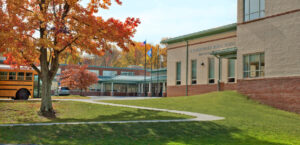 by James C. Sherlock
by James C. Sherlock
My frequent columns on Virginia schools bring up the same lines of arguments and agreements every time.
I hope it will help if I explain what I expect of school boards and superintendents. I try to align my writing with those expectations.
School boards and superintendents hold their positions first as trustees for the children, but then also for the interests of parents, school employees, and taxpayers.
So what are their primary duties? I will write of only five:
- provide a quality education to every child;
- provide safe and welcoming schools, excellent learning environments and equal access to education for all;
- listen to parents;
- be good stewards of public funds;
- manage professionally.
There are more, but I will stick to those because they are missing in some Virginia schools and districts.
While I have praised a few school systems, failures in those duties provide the underlying themes of much of my writing. I hope to write more about successes in the future.
Quality education. School boards and superintendents must comply with the Virginia Constitution by ensuring that “an educational program of high quality is established and continually maintained.” If they fail, the Constitution Article VIII Section I directs the General Assembly to “seek to ensure” that education.
Each school board member must inquire of the superintendent which schools in the district are not providing a quality education. Get the data.
Ask her to provide a plan of action and milestones for each academically deficient school with a completion date. When each plan is approved, track the milestones determine if it is successful. If not, act.
If quality educations are not provided, the rest of these duties don’t count. You have failed.
Equal access, safety and excellent learning environments. Do whatever is necessary and appropriate to ensure no student is given unfair advantage over another by the system or its employees. Provide safe and welcoming schools and excellent classroom learning environments for both staff and students.
Listen to parents. Be welcoming to parents and hear their thoughts before they turn into grievances. Deal with grievances as they occur. You won’t please everybody, but be respectful and you generally will get respect in return.
Stewards of public funds. Be good stewards of the public funds with which you are entrusted. If your school system is underfunded, use the political system to make you whole.
If you have schools with very high costs and average or worse academic achievements measured against the target cohort scores, the state assessment criteria, fix them to provide funds for more efficient operations.
Reconfigure staffs or schools as appropriate to the challenges of the student bodies to bring costs in line with required academic achievement. Do the same with the superintendent’s office.
Manage professionally. Boards need to be independent of the superintendent to help him. Let him innovate, but ask for the appropriate data to make your own judgements, ask questions and hold him accountable.
Reward success and discourage failure across the system. The best school boards bring to the school system focus and consistency of expectations across all stakeholders. They align the objectives and expectations of the board, the superintendent, school staffs, the taxpayers, the parents and the kids.
And they leave their personal politics at home.
When we judge school boards and superintendents, such assessments should be based on primarily their success or failure in educating the children, not their personal politics.
Unless they make it part of the problem. Most don’t.
Some do.

Leave a Reply
You must be logged in to post a comment.